Full crate training a dog is teaching them to self-settle in their dog crate, with the door closed, whenever you place them in the crate for a nap or nighttime sleep. This approach yields the most benefits of crate training and contributes to better behavior outside the crate and your home.
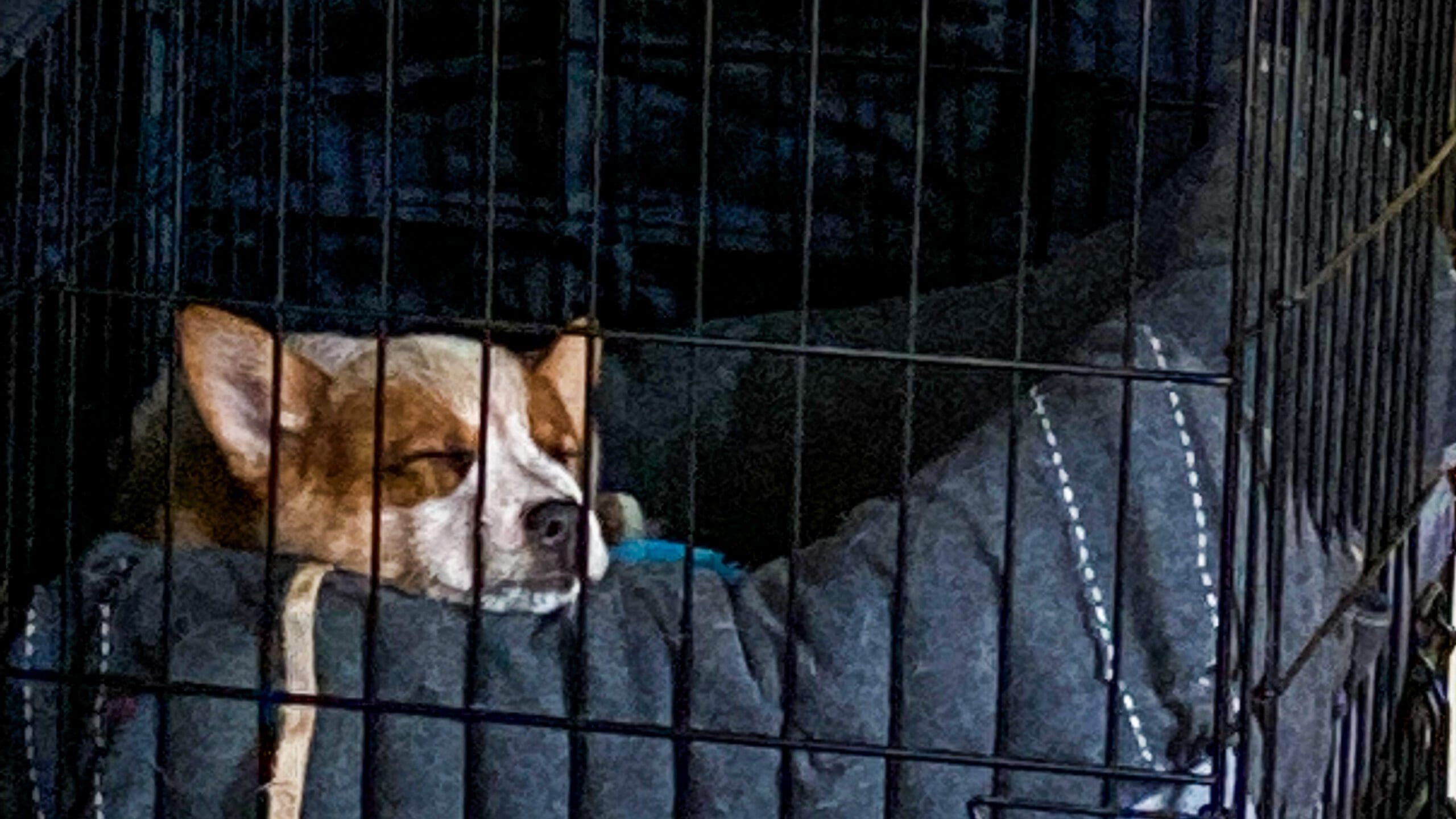
Why is Crate Training Important?
Beyond the practical use of keeping your dog out of trouble while you’re out of the house, crating a dog allows them to check out and fully relax. Done properly, full crate training teaches your dog to access a deep state of calm. They’re not pacing, scanning, barking, or otherwise looking for things to get into. Dogs are den animals and benefits of crate training provides the safety and security all canines need in their den
When you teach your dog to access more deep calm you get better overall dog behavior. Decompressing throughout the day means your dog’s level of adrenaline is lowered. Crate training, along with structured routine, leash work, and solid leadership gives clear expectations for your dog’s behavior.
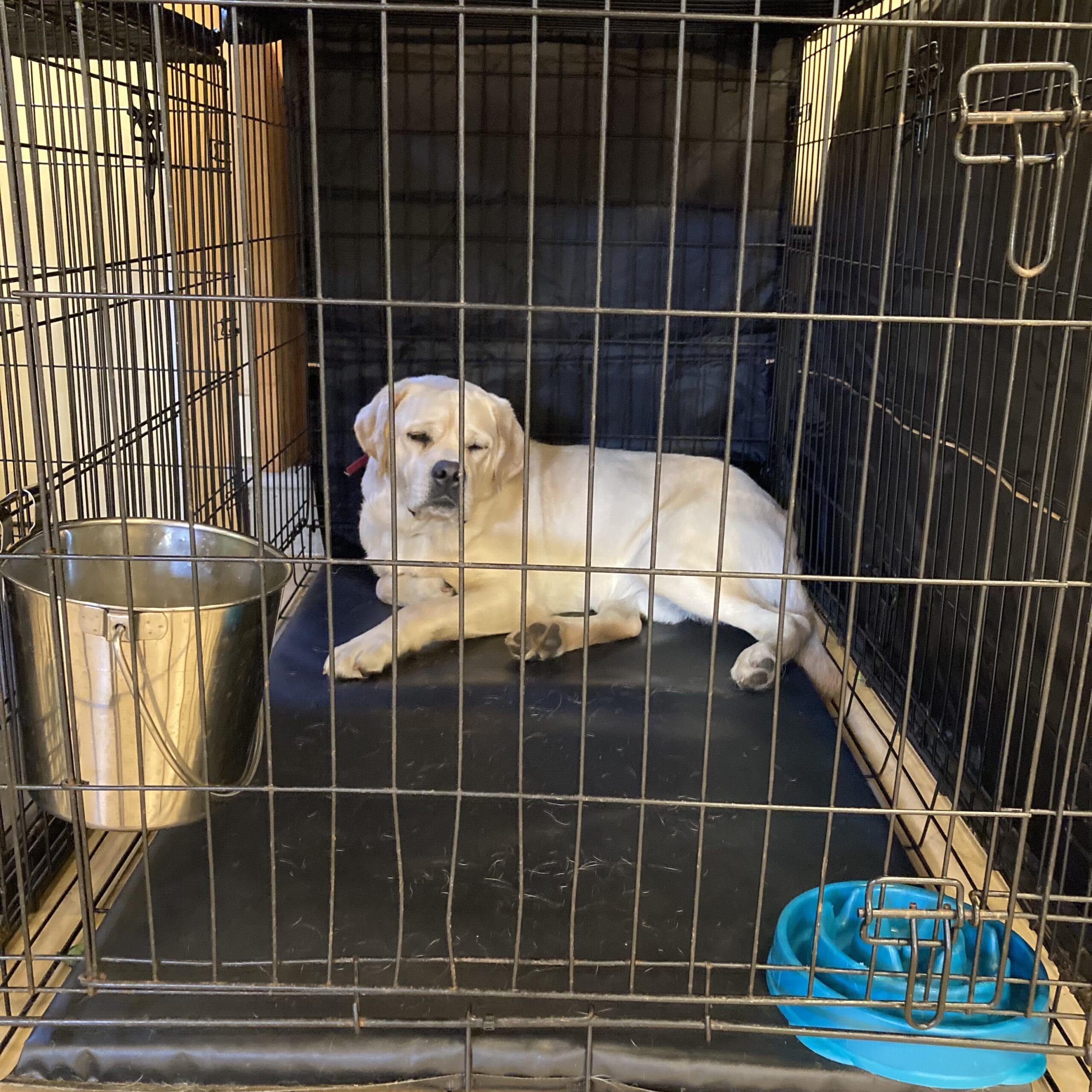
How to Crate Train a Dog
Crate training a dog is a process of gradually increasing the time spent relaxing in the dog crate. Start with a simple in-out drill with your dog on a leash. Walk up to the crate door, open it, say “crate” or “kennel,” and guide your dog in. With your dog inside, close the door without latching it.
Take a deep breath in and out, then lead your dog back out. Take a short walk through your home on leash and end up back at the crate. Repeat the “crate” command. Practice this 5-10 times. Increase time to 30 seconds of letting your dog chill before bringing them out of crate. Latch the door and walk away for an additional minute, come back. Then start to increase time before walking away.
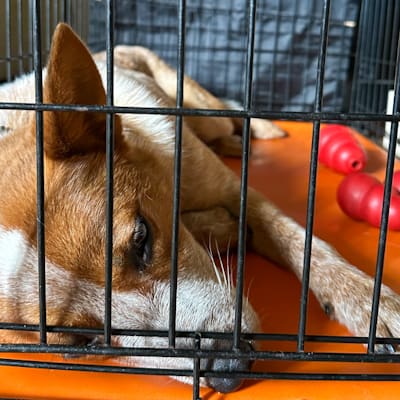
The first goal is to be able to leave your dog in the crate for 15-20 minutes while you’re home working or puttering nearby. It’s a process for your dog to learn to relax but a nap schedule demonstrates your leadership and teaches your dog a valuable lesson in self-settling.
Increase the time daily. Practice helps them settle. The end goal for full crate training will allow you to leave them alone while safely in the crate for multiple two-hour-long naps.
Read: Crate Training for Puppies
Free Download: Daily Crate Time Training Schedule
Watch: Beginning Crate Training
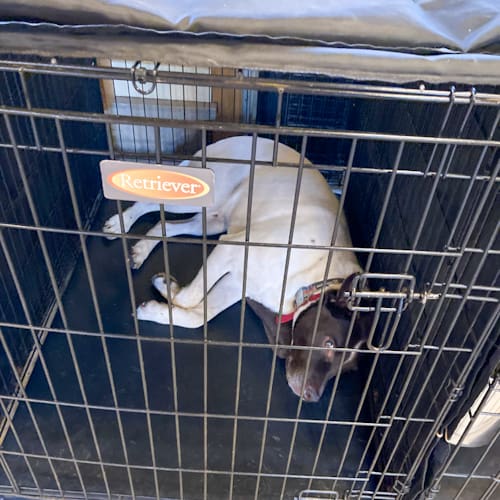
Our In-Person Programs
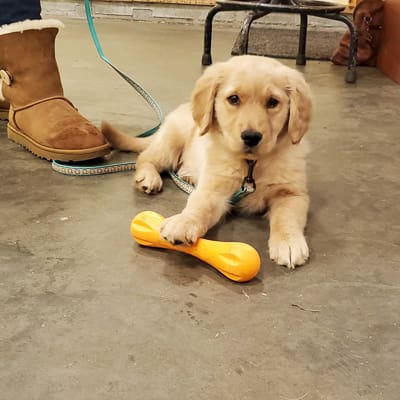
Team Puppy Training
Encourages your leadership and show how you to nurture good behavior.

Foundation Training
Covers the basics of good dog behavior as well as some behavior modification.
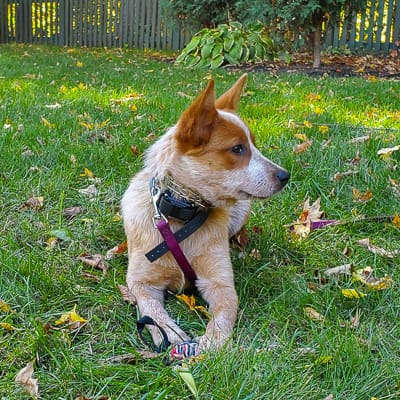
Remote Collar Training
Foundation Training with e-collar for total off-leash freedom and behavior modification.
What our clients have to say...
Dog Coach listened carefully and observed keenly my interaction and tone of voice with Bella. At nearly 6 months now, she is the best-trained dog I've had. It was a worthwhile experience!
We want to thank Dog Coach for your patience and encouragement! Our dogs are really coming into their own as the perfect family dogs we were looking for!
Such a great investment! We got a puppy and had a toddler... It was overwhelming at first. Working with Dog Coach has been the gift that keeps on giving.
